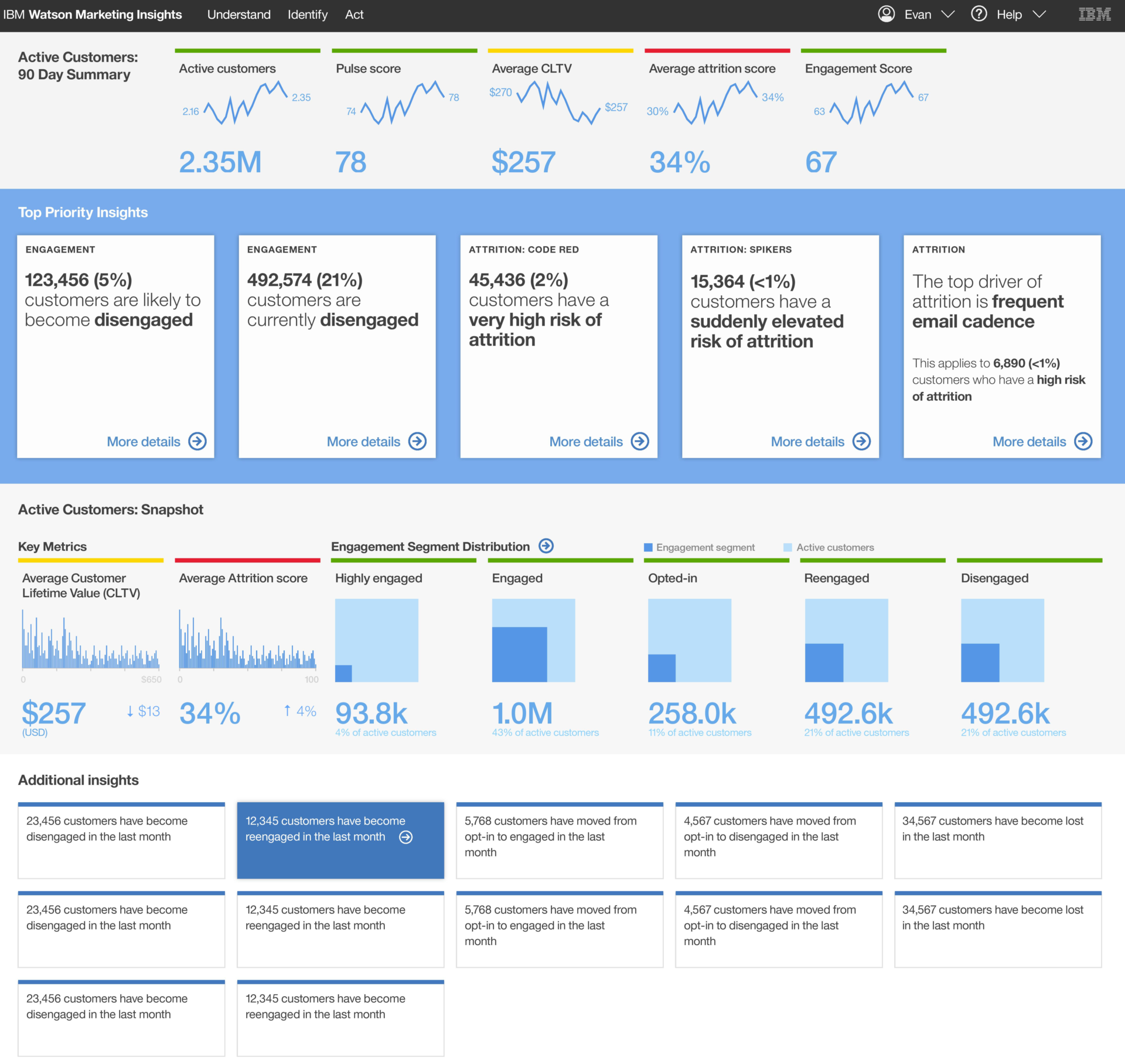IBM enlists Watson to define customer segments and insights
Through a newly expanded Marketing Insights, the supercomputing platform is defining customer groups by such goals as engagement and long-term value.
IBM is now using Watson’s brain to predict customer behavior.
The tech giant has released Watson Marketing Insights, which collects and analyzes data about identified users, generates targeted segments that can be exported to marketing tools and displays cognitive insights in natural language.
Project Manager David Pugh told me that this Watson product is “forming hypotheses at scale,” based on how users with certain attributes have responded in the past. The attributes come from email, website interactions, social media posts, in-store purchases and customer relationship management (CRM) systems, among other data sources.
Watson might predict, for instance, that users who do not open emails from campaigns may be more at risk of leaving the brand than those who regularly return the brand’s products.
The insights, shown on the dashboard along with the supporting reason, are based on data over time, since Watson learns patterns. The segments and insights are keyed to three goals: engagement, long-term value and attribution.
A segment might consist, for instance, of customers that Watson has determined are highly engaged with the brand, or an insight might suggest attributes that correspond with engagement. Here’s a sample screen:
A marketer can also manually define a segment using any attributes, for instance, and ask Watson to describe the attributes of people who respond well to a given campaign.
Previously, Pugh said, IBM’s predictive customer analytics was targeted toward the data science community, not marketers. A limited version of Watson Marketing Insights was previously released in October of last year.
Watson began dabbling in marketing back at the end of 2015. Of course, much of this newest implementation sounds like other predictive marketing platforms that identify best-performing customers by their attributes and behavior.
Pugh said one key difference is that Marketing Insights doesn’t just generate a score, as some predictive platforms do, but actually delivers a segment of users that can be immediately used for targeting by non-technical marketers.
For more background on IBM’s Watson, see our recent article, 6 ways that IBM Watson is changing digital marketing.
Marketing Land – Internet Marketing News, Strategies & Tips
(81)





